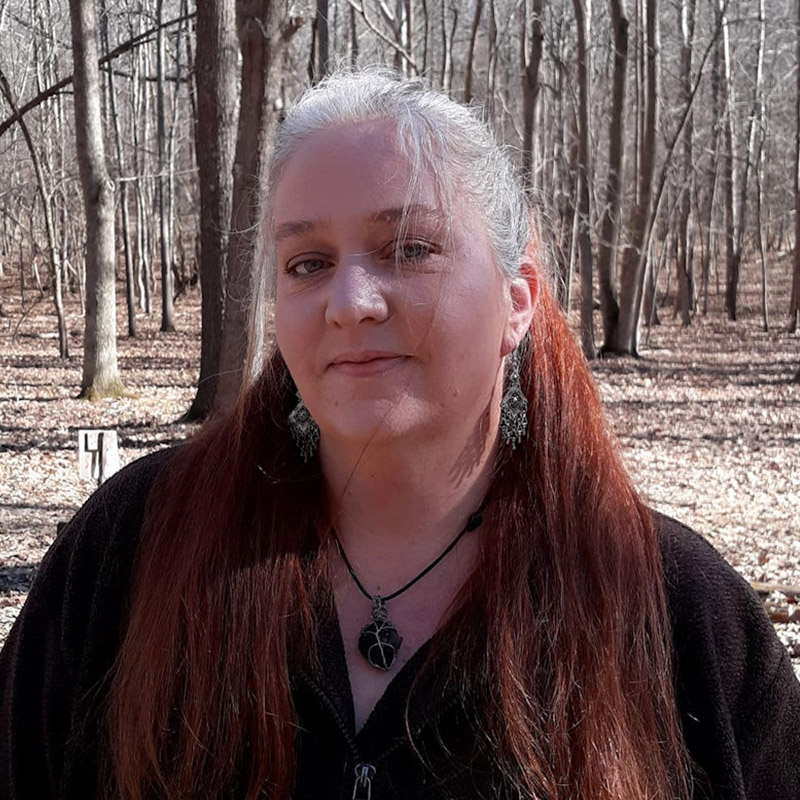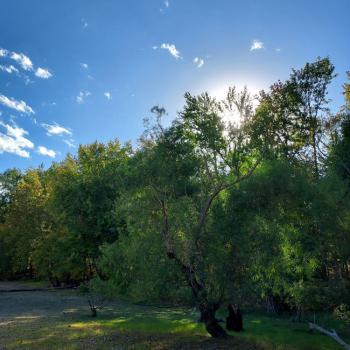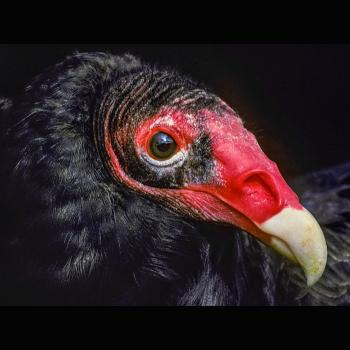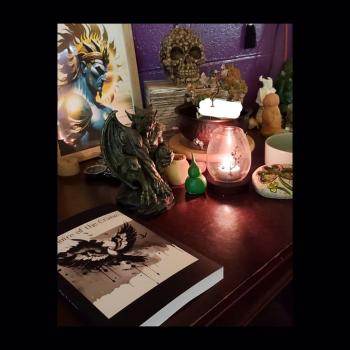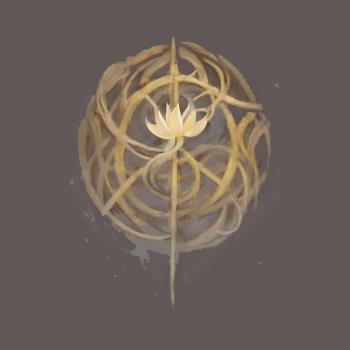No matter what your personal faith or belief system is, when you are a parent there are some aspects I feel need to be considered. How we approach and educate our children when it comes to spirituality in an Age of Spiritualism matters.
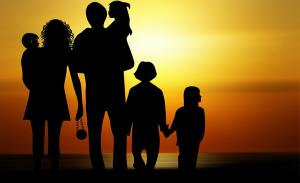
As a mother of five, that came from a background of catholicism, yet holds animistic, paganish, and witchy beliefs/ views, this aspect of parenting is important to me. Before I dive into my own approach though, I feel we need some clarity on the more traditional ways I have seen and experienced this.
Passing through Families
When asking about someone’s faith I often hear things such as “My family is Baptist” or “I grew up Christian.” I have always found this a bit odd as they are not telling me their personal beliefs but ones they were born into. The older I got, the more I encountered, the better I understood – especially when looking at more mainstream faiths. These were not chosen beliefs, but ones they were indoctrinated into from an early age.
This has been the most common way people have come to their faith. They are born into a family of one faith, and thus adopt those beliefs as their own. There are a couple of problems that I see in this approach, especially those in abrahamic/ christian faiths.
For many, they only know what their family tells them and what they hear in church. They follow but do not understand the depths or meanings of what it is to be what they claim to be. It’s not their fault, because they were never encouraged to dig deeper, to look at the various perspectives and doctrine of their religion. At least for christians, this is a designed plan. The church has always been about control and placing themselves as a needed piece between the ordinary people and their God. It is how they stayed in power.
The other big issue is lack of understanding of other belief systems. This leads to assumptions and prejudices of other faiths. I know the pagan and witchy communities experience this often, but it is not exclusive to them by any means. People make assumptions of these other faiths based on misinformation given to them by their spiritual leaders and then passed down through their families. This creates divisions and fear, which lead to blind hate. I specifically say “blind hate” because they do not know any real truth of the faith they are hating on, just a perceived one. Spiritual leaders are fully aware of this and use it to keep their flock within their sphere and not looking elsewhere.
It is not just Christian Faiths who Indoctrinate
In recent years I have been seeing a trend. Pagans who wholeheartedly condemned christians for indoctrinating their children, seem to be doing the same thing except from a Pagan perspective.
There was a trend on tiktok not too long ago that was showcasing this exact thing. Families of Norse traditions were welcoming and placing mjolnirs onto children in the age range of 4-9 years old. I get it was good for views, but at the same time it is also a reflection of the same “baptism” that many christian faiths use. This is not the only example, but a recent one.
I’m not getting into wrongs or right here – just stating what I am seeing and my perspective of that.
Issue with Indoctrination into Any Faith
The definition of Indoctrination is as follows : The process of teaching a person or group to accept a set of beliefs uncritically. – The key word for me here is “uncritically,”
The human brain is not fully developed until around age 25. That is why childhood is considered the time of exploration. As the child takes in new information, experiences, and understandings of those, their brains are being shaped and new connections being developed within it. It is why ideas and beliefs we held as a child do not always make it into our adult life.
The approach most of us experienced as children, when being taught about faith and spiritualism, was “this is what we believe and how we do things.” There wasn’t really debate, questioning, or seeing various perspectives. We didn’t experience or get taught other belief systems that we could compare to. Many I know were actually discouraged in their own explorations outside their families faith.

Instead of the approaches above, I think it is time for something new.
Everyone’s approach is going to look differently. This section isn’t telling you what to do, it is just showing my approaches and hopefully a place of inspirations.
Talk about Your Beliefs and the Whys
My kids are well aware of my beliefs, the Deities I work with, and the magic I do. They are curious and ask questions. I am proud of my faith and the bonds I have built. My faith and those connections are a large part of who I am and the choices I make. Talking about them with my children allows them to see, not just my faith, but the roles it plays in my day to day life.
With that being said, I am also very clear that this is my way. I tell them about all my other explorations into other religions, traditions, and faiths. Things I learned and discovered for myself in that. Above all though, I keep reiterating the fact that they should not follow mine, but look at this time (youth) as a time to explore and learn as much as they can about various cultures and belief systems.
I have the firm belief that to be truly connected to divine and our faith, we not only have to understand it but also live it. Our paths, our connections are personal to us. They can look similar to others but there are also some differences specific to us and what we need.
Learning Together
This accomplishes two really great things. First it encourages exploration and critical thinking of the information they are exploring. Secondly, it also broadens our own understandings and perspectives.
Kids are great because their view hasn’t been jaded by the world yet and the questions they ask are genuine. I can honestly say, that their skepticism and analytical views both challenge and deepen my own beliefs. I can’t just say “this is how it is” – it requires me to explain why I have the views and beliefs I do. Where they came from and how they developed. Why they have meanings to me and the experiences I have had through that process.
These challenges from them are their way of looking at my beliefs and picking them apart. Trying to find flaws, gaps, and learning the difference between personal experience and collective understanding. All of these things are developing their critical thinking skills. There is no offense or hurt feelings here – just honest conversations.
While I talk about mine, we also discuss other religions and traditions, What I have learned along the way, and what they are discovering for themselves. I am not above saying there are many things I learn from my children. We think as the adult we have to have all the answers and know more than our children – I would say this is a false and destructive way of thinking. Fresh eyes can not only bring new ideas and concepts, but they can also peel back accepted falsehoods.
The Family Aspect of Spiritualism
I think most of us want to incorporate our family into our practices and celebrate together. It’s a humanistic thing – community, togetherness, celebration. There are ways we can do this where it is a bonding experience but not an indoctrination.
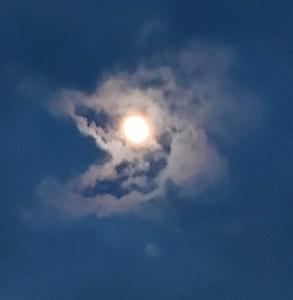
Animism
Animism is a great place to start. It is the belief and understanding that everything is connected (through energy) and everything holds its own energy. It is very nature based but also incorporates human/ societal aspects as well. It is also the “original” beliefs and where all religions and traditions stemmed from – it’s the roots of spirituality in my opinion.
Through animism you are teaching your kids about nature, our place within nature, and all the connections to spiritual energy. They are learning about their world and science, alongside the world of spirit. It helps them to understand concepts such as sovereignty, respect, and responsibility – lessons that are needed in all areas of our lives.
Animism not only starts a connection to spirit, but also connection to the world they live in and are a part of.
Birthday Wishes
Family traditions are not static, they can change with each person and their connections to it. We want way to celebrate together, even if our beliefs are different.
Birthday candles are going to be my example here. From my personal magical standpoints – blowing out a candle as it is burning is not really conducive to bringing a wish forward – instead it is how to snuff it out. You could take the view that the breath of the person is sending it out as they blow, but I personally feel you loose the energy.
So, using my own belief structure and thinking in animistic terms my triplets and I came up with an alteration. A bowl of water with a floating candle. The water holds the memory and words spoken to it (the energy infused into it). The candle is the source of energy to put into the wish to help it grow strong. The breath is the wish we speak directly to all of it as we light the candle (each one does this alone so it is private). Then light the candle, put it in the center of the table, and let it burn out in the water as you are all gathered celebrating the person (or in our case people). In the end, take the water and pour it at the base of a tree or plant you are connected to. So the energy of the tree/ plant can help the wish grow.
This is a simple example of creating new traditions that are not bound to a religion or specific belief system, but a general one that everyone can be included in.
Ending Thoughts
These are deep subjects and discussions I feel we should be having in our communities when it comes to children and faith. I think it not only allows for a healthier relationship with spiritualism, but also with coexistence between those of different faiths/ beliefs. We do not have to hold the same beliefs in order to work and exist together with respect.
What are some things you do to encourage exploration?
What are some practices you incorporate as a family?
What is something you can do differently?
What is an inspiration you can pass along to others on this?
Feel feel to share in the comments and let’s chat about it!


